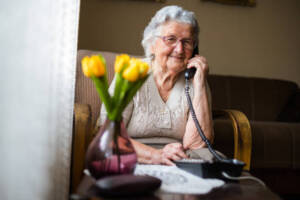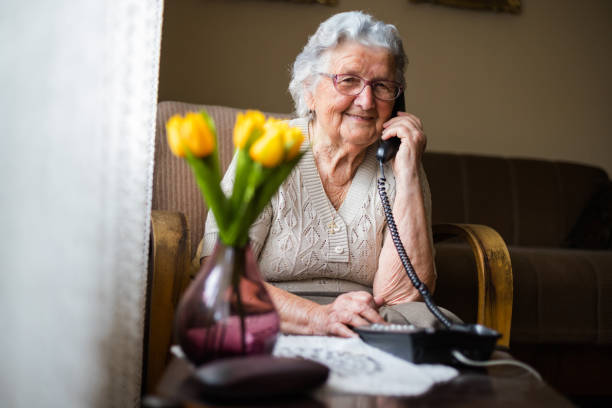Communicating Better with Seniors
As someone who has spent the better part of my adult life in the senior care professions, I’ve learned firsthand that effectively communicating with older adults is not a simple task. It’s difficult because issues with aging can cause communication disconnects between seniors and their caregivers. When this happens, the quality of care may be compromised.
Senior care companies allocate significant time and money training people on the hard skills required for elder care. It’s necessary because hard skills matter. People that care for older adults must have the technical know-how that enables them to identify needs and minimize risks that contribute to a senior’s well-being. Unfortunately, hard skills – while essential – are not enough if the goal is to deliver the highest standard of care possible. The best caregivers are people who’ve acquired the softer, more interpersonal skills that allows them to better understand the seniors they are serving.
Physical issues such as hearing loss, vision impairment, dementia and Alzheimer’s disease can impede how seniors communicate with their caregivers and vice-versa. While these challenges may be formidable, they can be effectively navigated by caregivers who understand what’s involved and how to respond.
Here are some valuable tips shared by great caregivers that anyone can use to better communicate with older adults:
- Give seniors your full attention. This means take time out from everything else you are doing so you can maintain direct eye contact and be an active rather than passive listener. Seniors often have a difficult time expressing themselves and what they say may sometimes not be what they really mean. If you paraphrase back to them something they said and get agreement, you can minimize the chance of a misunderstanding. In all cases, never interrupt, even if the senior become repetitive.
- Connect with them on their own terms. Any dialogue you have with seniors should move at their pace, not yours. Because memory issues are often a concern, try to use simple words and short sentences because they are easier for seniors to understand and remember.
- Avoid conflict. If a senior says anything that goes against your personal opinions, do not argue. Some older adults may suddenly become agitated because of physical or mental reasons and when this happens, stay calm until the moment passes before restarting the conversation.
- Make communicating easy. When it’s time to converse, eliminate all distractions. Turn off televisions and radios. If there are background noises such as loud street sounds or people talking, try to minimize it as much as possible. Many seniors have vision problems so ensure that the room is illuminated well so you can see each other clearly. Always speak loud and clear enough so seniors can fully hear every word you say.
- Exhibit empathy. The best caregiver communicators are those who exhibit authentic empathy. What you say is important but how you make a senior feel is the true test of an effective caregiver communicator. When seniors genuinely sense you have their best interests at heart, they are more likely to share their innermost thoughts and feelings. Body language such as giving a kind smile or gentle touch when a senior is speaking lets them see and feel how much you care.
No caregiver, professional or otherwise, is born with polished communication skills. It takes time and effort to acquire them. It also requires patience and practice to become a proficient communicator. The rule of thumb to remember is communication always works for those who work at it.


